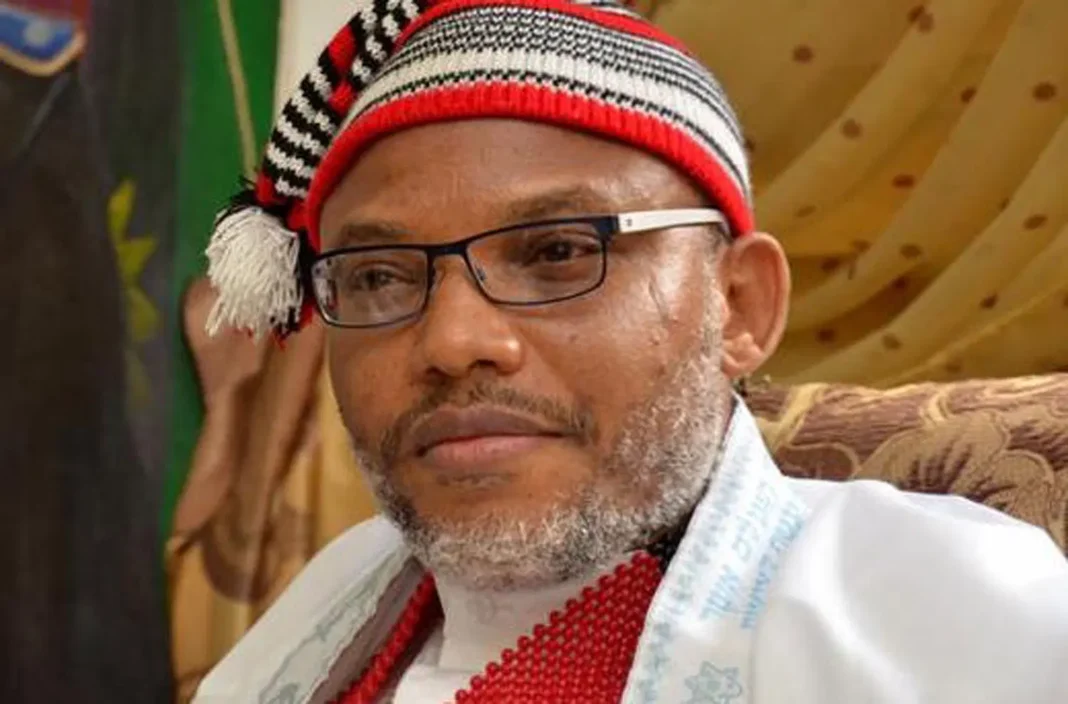The planned #FreeNnamdiKanuNow protest in Abuja on Monday morning transformed into a scene of confrontation as thousands of demonstrators marched despite police warnings and court injunctions. The rally, centred on demands for the release of Nnamdi Kanu, the detained leader of the Indigenous People of Biafra (IPOB), ended with multiple dispersal operations by security forces after protesters regrouped following initial containment.
Protest organisers had instructed participants to assemble early at Eagle Square before proceeding to the Presidential Villa. The march was billed as peaceful, but a sweeping security deployment greeted the protesters. Police checkpoints blocked major access routes into the city centre, including the Keffi-Abuja Expressway and Karu Bridge, as authorities sought to prevent the march reaching its target. Vehicles and public transport were delayed, and the capital’s traffic gridlock deepened.
Around mid-morning, groups of protesters gathered near Maitama and the Central Business District, chanting slogans for Kanu’s liberation. The march attempt encountered resistance when the police deployed tear gas canisters to disperse crowds. Many protesters scattered, but some regrouped in Utako where they resumed demonstrations with placards and calls for Kanu’s unconditional release. Once again, security personnel intervened, using patrol vehicles and further tear gas to break the gathering. Officers later warned that participants violating court-orders would face arrest and prosecution.
Understanding the background is essential to grasp the intensity of the protest. Nnamdi Kanu, who holds British citizenship, founded IPOB in the early 2010s to campaign for the restoration of the defunct Republic of Biafra, the breakaway state that fought the Nigerian government from 1967 to 1970. Kanu’s rise followed his establishment of Radio Biafra in the UK, through which the movement gained international attention. These calls for secession and independence were met by Nigerian authorities with deep concern; IPOB was proscribed in 2017. The movement has been accused of orchestrating sit-at-home campaigns that paralysed economic activity in Nigeria’s south-east and led to violent clashes with security agencies.
Kanu was first arrested by Nigeria’s Department of State Services in 2015 on treason and broadcasting charges; he later returned to bail and fled Nigeria in 2017. He was re-arrested in June 2021 after a controversial operation in Kenya and handed over to Nigerian authorities. Courts have since heard multiple motions, denied bail, and changed judges repeatedly as the trial process dragged on. The Supreme Court in December 2023 reaffirmed that terrorism charges against him must proceed, despite the extraterritorial nature of his rendition.
This protest is therefore deeply anchored in long-running grievances. For many in the Igbo region and among IPOB supporters, Kanu’s detention is emblematic of what they describe as marginalization, selective justice, and ethnic injustice. Others see IPOB’s tactics, including the enforced sit-at-home orders and periodic violence, as disruptive and a threat to regional stability and commercial activity.
Ahead of the demonstration, civil society groups cautioned against possible hijackings by hoodlums and warned that the protest could derail the legal process. A separate Igbo organization expressed concern that the timing of the march might complicate ongoing consultations between southeastern political leaders and the federal government. Mobilisation for the protest drew backing from student unions and youth groups, who pledged to join from across the country, even as security agencies flagged the risk of escalation.
As the protest unfolded this morning, everyday life in Abuja was affected. Markets and businesses in the city centre reported reduced activity, commuters were delayed by closed roads, and disruptions continued through the day. Police reiterated that the constitutional right to peaceful assembly remains valid but stressed that it must operate within the rule of law and court orders.
Samuel Aina

